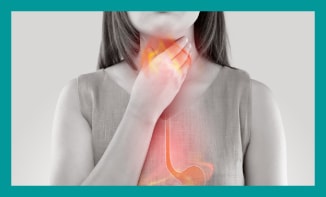Acid Reflux Treatment
 Acid Reflux Treatment at our Guardian Featured Clinic: Our Acid Reflux treatment addresses the underlying issues and not just the symptoms. Treatment is carefully tailored to meet each patient’s unique needs.
Acid Reflux Treatment at our Guardian Featured Clinic: Our Acid Reflux treatment addresses the underlying issues and not just the symptoms. Treatment is carefully tailored to meet each patient’s unique needs.
What is Acid Reflux?
Gastro-oesophageal reflux (GERD) occurs when the contents of the stomach flow back up into the oesophagus—the muscular tube that carries food and drink from the mouth to the stomach. GERD is also acid reflux or acid regurgitation because the stomach’s digestive juices contain acid. Refluxed stomach acid that touches the lining of the oesophagus can cause heartburn, which is an uncomfortable, burning feeling in the mid-chest, behind the breastbone. Our acid reflux treatment addresses the underlying issues causing this.
What is GERD?
Gastro-oesophageal reflux disease (GERD) is a more serious, long lasting form of GER. Reflux that occurs more than twice a week for a few weeks could be GERD, which over time can lead to more serious health problems.
What causes GERD?
Gastro-oesophageal reflux disease results when the lower oesophageal sphincter—the muscle that acts as a valve between the oesophagus and stomach—becomes weak or relaxes when it should not, causing stomach contents to rise up into the oesophagus.
Hiatal hernias may also cause GERD. These occur when the upper part of the stomach moves up into the chest. The stomach can slip through an opening found in the diaphragm. The diaphragm is the muscle wall that separates the stomach from the chest. Hiatal hernias may cause GERD because of stomach acid flowing back up through the opening; however, most produce no symptoms.
Other factors that can contribute to GERD include:
- obesity
- pregnancy
- certain medications, such as asthma medications, calcium channel blockers, and many antihistamines, pain killers, sedatives, and antidepressants
- smoking, or inhaling secondhand smoke
- underlying health issues
What are the symptoms of GERD?
The main symptom of GERD is frequent heartburn, although not always. Other common symptoms include:
- a dry, chronic cough
- wheezing
- nausea
- vomiting
- a sore throat, hoarseness, or laryngitis
- difficulty swallowing or painful swallowing
- pain in the chest or the upper part of the abdomen
- dental enamel erosion and bad breath
How is GERD diagnosed?
A completely accurate test for diagnosing GERD does not exist. A gastroenterologist may use an upper endoscopy, if a person continues to have GERD symptoms despite lifestyle changes and treatment with medications. An upper endoscopy is a common test used to evaluate the severity of GERD.
What is the mainstream medical treatment for GERD?
Treatment for GERD may involve one or more of the following, depending on the severity of symptoms:
Lifestyle Changes – Some people can reduce GERD symptoms by:
- losing weight, if needed
- remaining upright for 3 hours after meals
- raising the head of the bed 6 to 8 inches by securing wood blocks under the bedposts
- avoiding smoking and being around others who are smoking
Pharmaceutical Medications
- Antacids are a first-line approach to relieve heartburn and other mild GERD symptoms
- H2 blockers, such as cimetidine (Tagamet HB), famotidine (Pepcid AC), nizatidine (Axid AR), and ranitidine (Zantac 75), decrease acid production. These medications are available in both over-the-counter and prescription strengths. H2 blockers provide short-term or on-demand relief and are effective for many people with GERD symptoms
- Proton Pump Inhibitors (PPIs) include omeprazole, lansoprazole, which are available by prescription.
Surgery
When a person cannot manage severe GERD symptoms through medication or lifestyle changes, surgery may be recommended as a treatment for acid reflux.
What is our treatment for GERD?
At Harley Street IBS Clinic the aim is to diagnose any underlying health issues, which may have given rise to GERD, and address them. Dietary guidance is given to help support the treatment and help reduce the inflammation. The treatment for acid reflux is formulated based on the patient’s underlying health issues, using personalised prescribing with a Functional Medicine approach. Patients report that this personalised, non pharmaceutical approach works better than a one size fits all approach.
What are the long-term complications of GERD?
Untreated GERD can sometimes cause serious complications over time, including:
- oesophagitis—irritation of the oesophagus from refluxed stomach acid that damages the lining and causes bleeding or ulcers
- strictures that lead to swallowing difficulties
- respiratory problems, such as trouble breathing
- Barrett’s oesophagus, a condition in which the tissue lining the oesophagus is replaced by tissue similar to the lining of the intestine. A small number of people with Barrett’s oesophagus develop a rare type of cancer of the oesophagus
In our Acid Reflux treatment, we diagnose and address the underlying issues causing it. We also address any IBS symptoms that often accompany this condition.
References
Diagnosis of gastroesophageal reflux: an update on current and emerging modalities.
If you are interested in this natural treatment for acid reflux
Contact Deborah’s Medical Secretary for an appointment